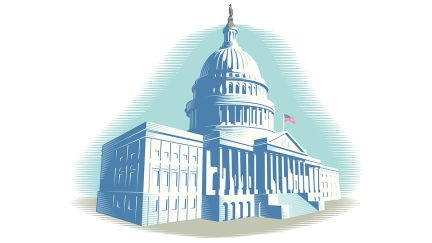Want the latest retirement plan adviser news and insights? Sign up for PLANADVISER newsletters.
Betterment, Vanguard Find Workers Tapped Retirement Savings in 2022
Workers are increasingly dipping into savings to cover costs that are increasing due to inflation, creating a moment for advisers to work with plan sponsors on their financial benefit programs.

About a quarter of full-time workers have gone into their retirement savings to pay for short-term expenses this year, according to a national survey by Betterment at Work.
Betterment, a 401(k) and financial benefits provider, reported last week that 28% of 1,000 workers surveyed say they tapped retirement savings amid record levels of inflation and prolonged market volatility. The New York-based firm said worker confidence in their own financially stability has dropped since 2021, with 40% now saying they are financially stable, a 9% drop compared to last year.
“Many workers are struggling with new challenges and financial anxiety, meaning financial wellness benefits have become more important than ever,” Kristen Carlisle, vice president and general manager of Betterment at Work, said in a press release.
The Betterment research follows a report from Vanguard in November that the share of workers taking cash from their employer retirement plans is rising for loans, non-hardship withdrawals and hardship withdrawals. Hardship withdrawals, which are subject to income taxes and a possible 10% early-withdrawal penalty, hit their highest level since Vanguard began tracking them in 2004.
Workers’ decisions to tap into their retirement savings are a concrete sign of the financial anxiety felt by America’s workforce due to high inflation, market volatility and talk of recession, according to Betterment. The benefits provider said the majority (71%) of employees are anxious about their finances, and another 54% say this anxiety has made it difficult to focus at work.
Employees are looking for support, with 68% saying financial wellness benefits are more important to them now than they were a year ago. Coveted benefits include a health savings account, an employer-sponsored emergency fund and student loan offers, according to the research.
A Benefits Arms Race
These types of financial benefits are particularly important for smaller employers, says Edward Gottfried, Betterment’s director of product management, because fewer small businesses offer 401(k) savings plans and wellness tools. The silver lining, he says, is that there has been “a bit of a healthy arms race” leading to the creation of affordable and accessible financial benefit programs during the Great Resignation.“The last couple years have been a little bit crazy in terms of growth of offerings [among small employers],” Gottfried told PLANADVISER. “There has been a realization from small employers that they needed to offer benefits to be competitive with their peers.”
There has been competition for workers both in specialized jobs and for entry-level positions, Gottfried says. Retirement plan and financial advisers have an opportunity to make sure employers are aware of the full range of retirement and wellness benefits available to them.
He says Betterment’s differentiation in the marketplace is an employee offering with one-stop shopping, including retirement planning, student loan payment advice and safe ways to start up emergency savings.
An emergency savings plan may help some of the rising number of Americans who report being more financially risk averse than last year. In surveying in early December, insurance provider F&G found that 78% of Americans said they have become more financially risk averse, up from 69% in 2021. The Des Moines, Iowa-based insurer said that of 1,691 people surveyed, 67% feel like their financial safety net has been taken away from them in 2022, up from 47% of people who said so one year ago.
Not all findings, however, have been dour. In other December research, Bank of America found that among its clients, median household savings and checking balances remain well above pre-pandemic 2019 levels across all income levels. While the bank found an increase in “buffers” being drawn upon due to high inflation and housing costs, most consumers are not spending more on credit relative to debit card use in 2019.
Whether workers are financially strapped or not, advisers may have more room to speak with businesses about their retirement and financial benefits. Slightly less than half (45%) of workers feel their employer is committed to supporting their financial wellness, according to the Betterment survey.
You Might Also Like:

Candidly Claims $1.8B in Student Debt Impact

Most Workers Acknowledge the Importance of DC Plans




